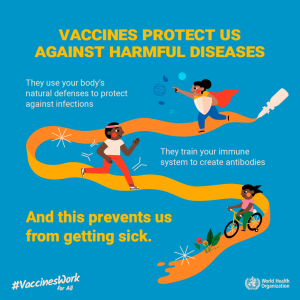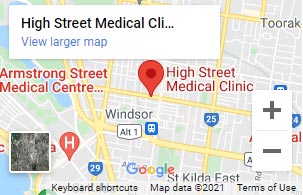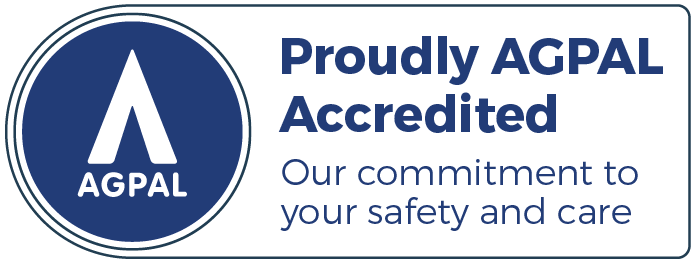Are you in this age range? If so, a health assessment might be just what the doctor ordered—literally.
A thorough health assessment can be important at any stage of life, but there’s growing advocacy for people in this age range.
There are a few reasons why health assessments for this age group are important:
- Statistically, you have a higher chance of showing signs of the development of chronic disease
- Signs of cardiovascular risk and other concerns can emerge
- They’re an opportunity for healthcare professionals to discuss lifestyle factors, such as diet, exercise, and stress management
- Healthy lifestyle choices can drop off for people in this age group
In this article, we discuss
- Signs you might be due for a health assessment
- What to expect in a health assessment for 45-49 year olds
- Things you can do now to steer your health to a better path
To find the answers, we called on the experts practising at High Street Medical Clinic, who offer professionals health support on a range of ailments from general medicine to mental health and more serious concerns.
Signs you might be due for a health assessment
Do the following remind you of someone you know?
- Doing less or no physical exercise compared to years past
- In a high-profile or management position at work that demands long hours, possibly with more stress
- Finding yourself enjoying a little more time on the couch with a little less healthy food
These things can be pretty common for 45-49 years olds, as well as these signs you might be due for a health assessment:
1. Family history
You have a family history of certain health conditions, such as heart disease, diabetes, cancer, or other hereditary conditions. If this is the case, you may benefit from a health assessment to assess your risk factors.
2. Pre-existing health conditions
You have any chronic health conditions like hypertension, diabetes, or asthma or other pre-existing health concerns.
Pre-existing health conditions can develop or change over time, so it’s worth keeping on top of them with a health assessment.
3. Changes in health or symptoms
If you’ve experienced changes in your health, especially those with no simple explanation, a health assessment can help identify the underlying cause.
These can include:
- Unexplained weight changes
- Persistent fatigue
- Changes in bowel or bladder habits
- Unusual skin changes, inc. sun damage
- Any other concerning symptoms
4. Lifestyle factors
If you have a sedentary lifestyle, poor dietary habits, smoke, or consume excessive alcohol, it may be time for a health assessment to evaluate the impact of these factors on your overall health.
It’s more often than not that these lifestyle factors start to become apparent around the late-40s mark.
5. Stress and mental health
You’ve been experiencing significant stress, anxiety or mood changes. A health assessment can help assess your mental health and provide appropriate support and resources.
There’s considerable concern in the medical community that stress may contribute to physical illness such as cardiovascular disease and other problems.
6. Changes in vision or hearing
It’s not unusual for those in their late 40s to notice their vision and/or hearing becoming not as sharp as it once was.
7. It’s been a while since your last assessment
It’s been several years, or a period of time that you consider “a while” since your last health assessment.
If this is the case, it’s a good idea to schedule a check-up. Regular health assessments are essential to track changes in your health status over time.
Regular health assessments are an essential part of maintaining your overall wellbeing and catching potential health issues early.
If you notice any of the signs listed above or feel it’s time to know how your health stacks up, book an appointment with us today.

What to expect in a health assessment for 45-49 year olds
Health assessments are designed to provide you and a medical professional with a comprehensive overview of your health.
As such, health assessments can change or vary depending on someone’s lifestyle and circumstances.
You can expect to have a discussion with your doctor where they’ll get a scope of your lifestyle.
They may ask you questions around the following:
- Your lifestyle
- Family medical history
- Personal medical history
- Allergies
You’ll also have an opportunity to inform them of any concern you may have too.
Your doctor will measure vital signs, such as blood pressure, heart rate and weight, to assess basic health indicators.
The assessment will likely include screenings for age-related diseases, such as cancer, osteoporosis, and vision and hearing impairments.
Blood tests may be conducted to check cholesterol levels, blood sugar, and other important markers.
Mental health and emotional wellbeing may also be addressed, as mental health is an integral part of overall wellness with specific points more relevant for 45-49 year olds.
Based on the assessment results, your doctor will offer personalised recommendations and advice for preventive measures, lifestyle changes, and necessary follow-ups to ensure good health and disease prevention in this crucial stage of life.
Things you can do now to steer your health a better path
Here are some simple ways for 45-49 years olds to boost their overall health and wellbeing:
Regular exercise
We’ve heard it all before, and for good reasons. Engaging in regular physical activity works wonders for health, that’s physical and mental health.
Aim for at least 150 minutes of moderate-intensity aerobic activity or 75 minutes of vigorous-intensity aerobic activity each week. A great idea is to add a Saturday or Sunday morning walk, hike or jog into your routine.
Balanced diet
Keep your diet healthy and balanced so that it includes a variety of fruits, vegetables, whole grains, lean proteins, and healthy fats.
We all know what a healthy diet consists, and what it doesn’t consist of.
Minimise the intake of processed foods, sugary drinks, and excessive amounts of saturated and trans fats too as these things can creep up.
Routine check-ups
Undergo regular health screenings and check-ups as recommended by your doctor.
These screenings may include blood pressure checks, cholesterol levels, blood glucose tests, and age-specific screenings such as mammograms, colonoscopies, and bone density tests.
Manage stress
Different causes of stress hit us at different stages of life, and we all deal with them differently.
Practice stress-reducing techniques like hobbies and (healthy) activities that you enjoy.
Chronic stress can negatively impact health, so it’s essential to find healthy ways to cope.
Avoid smoking and limit alcohol
Smoking and excessive alcohol consumption can significantly increase the risk of various health problems.
If you’ve been smoking and/or drinking excessively or did so in your younger days, the risks can often start becoming apparent in your late 40s.
If you drink alcohol, do so in moderation and have periods of time (weeks and months, not just days) with no alcohol.
At the end of the day
Health assessments are a crucial part of everyone’s health and wellbeing around age 45-49, and other age brackets, no matter your lifestyle or circumstances.
One of the biggest benefits is preventive care, where a medical professional can identify a concern before it becomes a serious problem.
Another is alleviating any concerns you may have, another still is identifying changes, some simple, to put you on a path to better health.
If it’s been a while since you have a health assessment, or you’re due for one, get in touch with us today.
You can find more information about health assessments for 45-49 year olds here.












